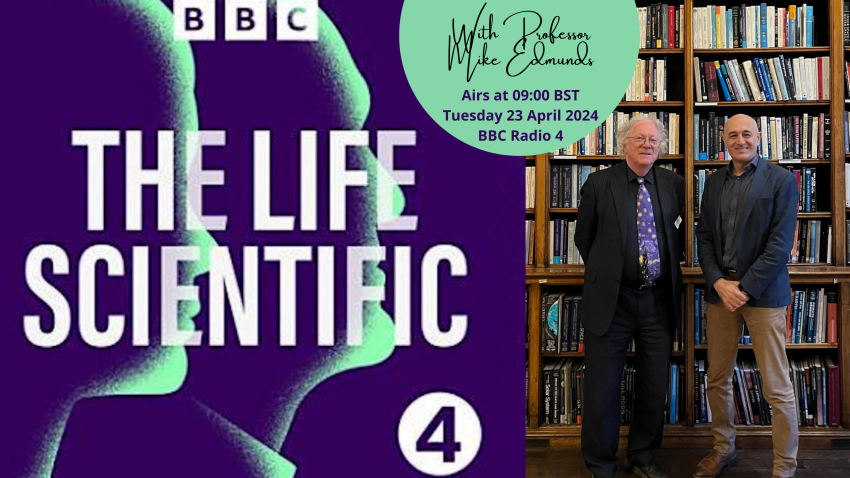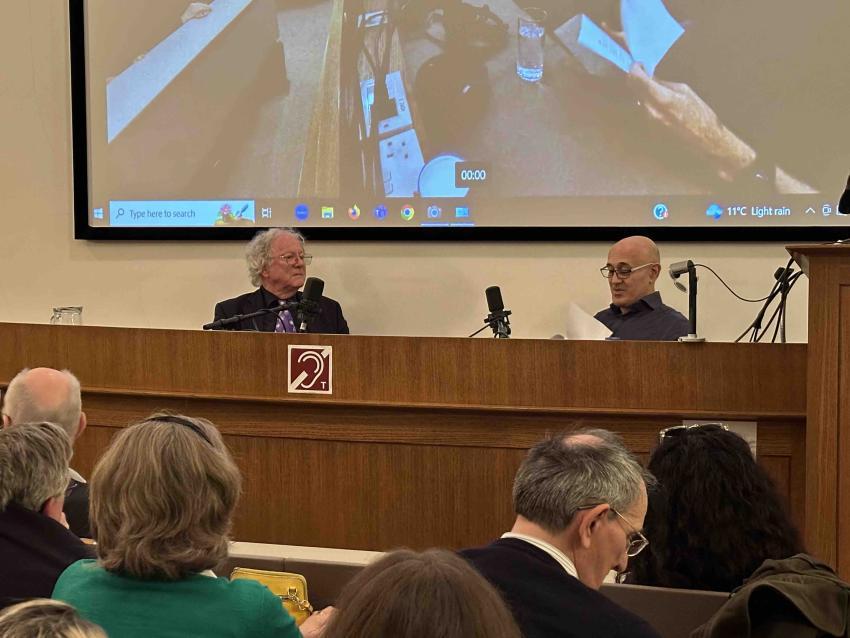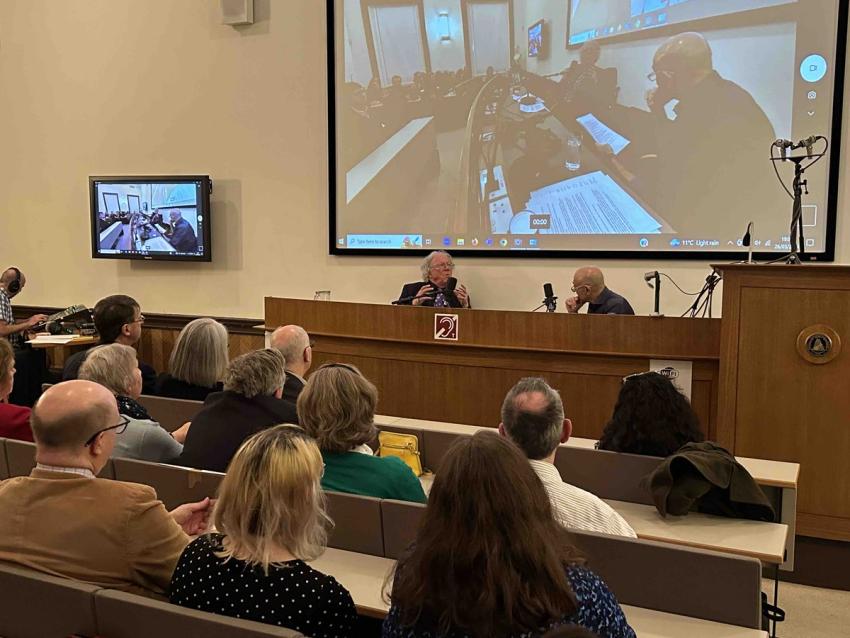BBC Radio 4 is set to air an episode of The Life Scientific exploring the life and work of the Royal Astronomical Society’s president Mike Edmunds.
Hosted by theoretical physicist Jim Al-Khalili, the programme was recorded last month in front of a studio audience at the Society’s HQ at Burlington House, London.
It will be broadcast on Radio 4 at 09:00 BST on Tuesday 23 April and repeated at 21:00 BST the following evening.
Tune in to hear Professor Edmunds talk about the make-up of galaxies and decoding ancient astronomical artefacts as he reflects on a research and teaching career which has spanned six decades, as well as his one-man show about Sir Isaac Newton.
He also discusses his upbringing and first steps into astronomy, revealing that he never had a telescope as a child.
Professor Edmunds was educated at Cambridge but has lived and worked in Wales for more than 35 years. He has been RAS president since 2022 and is also the Emeritus Professor of Astrophysics at Cardiff University.
Professor Edmunds's primary research career focused on the determination and interpretation of the abundances of the chemical elements in the Universe, as well as the investigation of the origin of interstellar dust. His later work has concentrated on the history of astronomy and Science in Society activity.
In the programme, Professor Edmunds jokes with Professor Al-Khalili about how he was first interested in specialising in meteorology, only to decide that astronomy was safer when he was told he would have to fly a glider into a thunderstorm as part of a post-university project.
He also reveals that his one-man show first came about shortly after he met his wife on a train at Paddington station.
Professor Al-Khalili asks about the UK’s reputation for astronomy, which Professor Edmunds calls “extremely good” - citing the UK’s involvement in the Extremely Large Telescope and Square Kilometre Array radio telescope projects.
He also discusses his love of teaching, revealing the ‘three Es’ to his success are:
- Be enthusiastic about your subject
- Be engaging to keep students listening
- Enable them to learn with the right environment and practical exercises
The programme finishes with a Q&A from the audience, where Professor Edmunds is asked what he would change about his life, his greatest influences and what we can expect from astronomy over the next 50 years.
Find out what he said by listening to The Life Scientific on BBC Radio 4 on Tuesday 23 April at 09:00 BST or Wednesday 24 April at 21:00 BST. An extended podcast edition will also be available to download via BBC Sounds or the programme website shortly after broadcast at https://www.bbc.co.uk/programmes/b015sqc7.
Media contacts
Sam Tonkin
Royal Astronomical Society
Mob: +44 (0)7802 877700
Notes for editors
About the Royal Astronomical Society
The Royal Astronomical Society (RAS), founded in 1820, encourages and promotes the study of astronomy, solar-system science, geophysics and closely related branches of science.
The RAS organises scientific meetings, publishes international research and review journals, recognises outstanding achievements by the award of medals and prizes, maintains an extensive library, supports education through grants and outreach activities and represents UK astronomy nationally and internationally. Its more than 4,000 members (Fellows), a third based overseas, include scientific researchers in universities, observatories and laboratories as well as historians of astronomy and others.
The RAS accepts papers for its journals based on the principle of peer review, in which fellow experts on the editorial boards accept the paper as worth considering. The Society issues press releases based on a similar principle, but the organisations and scientists concerned have overall responsibility for their content.




